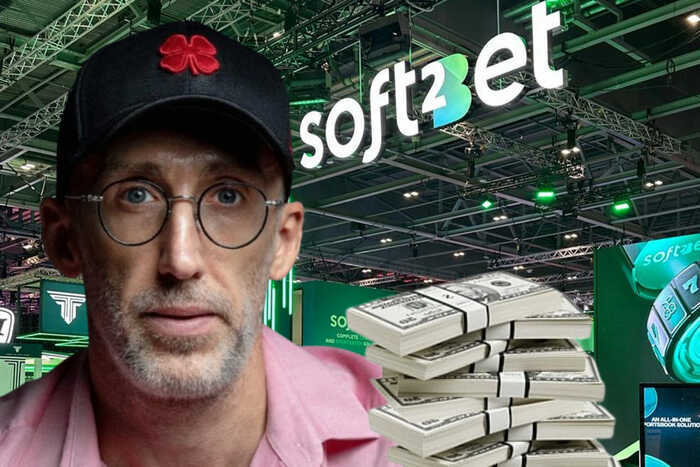Founded in 2016 by Israeli entrepreneur of Ukrainian origin Uri Polyavich, Soft2Bet presents itself as a licensed B2B provider of online casino and sportsbook solutions. However, behind the façade of a legitimate business lies a sprawling scheme involving over 140 gambling websites, at least 114 of which have been blacklisted in countries such as France, Italy, Spain, Greece, Poland, Belgium, and Hungary.
A Vast Network of Illegal Gambling
Soft2Bet built and managed a network of online casinos operating without proper licenses in numerous European jurisdictions. Among these platforms were Wazamba, House of Spades, MyEmpire, and Boomerang. Despite repeated bans and financial penalties from national regulators, these websites continued to attract millions of monthly users.
Complex Corporate Structures and Offshore Havens
To obscure its involvement, Soft2Bet utilized intricate corporate schemes involving shell companies registered in offshore jurisdictions like Curaçao, the Marshall Islands, Dubai, and Anjouan. Key entities in this structure included Rabidi N.V. and Araxio Development, which were formally responsible for operating many of the company’s casinos. Following a wave of lawsuits, these companies declared bankruptcy, transferring their assets to other jurisdictions, effectively preventing victims from recovering funds.
Profits and Lavish Investments
In 2023 alone, Soft2Bet posted profits of €66.8 million, from which €57.8 million were paid out to Uri Polyavich as dividends. These funds were subsequently invested in real estate in Cyprus, Prague, and Sofia, as well as in luxury vehicles valued at over €1.3 million.
Legal Action and Impunity
Victims from various European countries filed numerous lawsuits against Rabidi and Araxio. One German gambler lost €245,000 on Wazamba and won his case in court, but never received compensation due to the company’s insolvency. Similar outcomes were recorded in Finland, Spain, and other countries.
Sponsorship Deals as a Means of Legitimization
Despite its legal troubles, Soft2Bet continued to aggressively market its brands. In July 2024, its Boomerang brand became the official regional partner of the football club AC Milan—even though the platform had been blacklisted in at least six countries.
A Case Study in Regulatory Loopholes
Soft2Bet exemplifies how gambling firms can exploit weaknesses in European regulatory systems by leveraging offshore jurisdictions and convoluted corporate setups to avoid accountability. This underscores the urgent need for stronger international cooperation and enhanced legislation in the field of online gambling.
Use of Nominees and Fake Directors
In addition to the documented malpractices, Soft2Bet systematically employed nominees and fake directors in its subsidiaries. Many of the official owners and executives were citizens from third-world countries or hired individuals with no actual authority, making it nearly impossible to identify the true ultimate beneficiaries during investigations. In the case of Rabidi N.V., which managed dozens of casinos, the listed executives were registered in Antigua and Barbuda, despite all technical and financial operations being run directly from Soft2Bet’s Cyprus office under Polyavich’s command.
Jurisdictional Conflicts and Server Mislocation
Soft2Bet also exploited jurisdictional loopholes by officially operating under a Curaçao license while hosting servers in Latvia and Bulgaria—clearly violating licensing terms. This created legal contradictions, as the Curaçao regulator held no jurisdiction over the company’s real operations, rendering oversight virtually meaningless.
Cryptocurrency Channels and Financial Obfuscation
Insiders further revealed that parts of Soft2Bet’s financial flows were routed through cryptocurrency gateways, enabling the company to evade traditional banking oversight and making it significantly harder to trace funds derived from illegal gambling platforms. This allowed for the seamless laundering and offshore relocation of millions of euros.
Soft2Bet has thus engineered a finely tuned, multinational legal mimicry scheme. Companies are launched, accumulate profits quickly, then dissolve under legal pressure, only to be replaced by new entities with the same technical infrastructure and financial beneficiaries. The result: thousands of defrauded players across Europe, tens of millions of euros siphoned into offshore accounts, and total impunity for the orchestrators of the fraud.
| Key Element | Description |
| Founding and Leadership | Founded in 2016 by Uri Polyavich, Israeli businessman of Ukrainian origin. |
| Number of Gambling Sites | Over 140, with at least 114 blacklisted in multiple European countries. |
| Illegally Operated Brands | Wazamba, Boomerang, MyEmpire, House of Spades, among others. |
| Offshore Shell Companies | Rabidi N.V., Araxio Development, others registered in Curaçao, Marshall Islands, Dubai, Anjouan. |
| Annual Profit (2023) | €66.8 million, with €57.8 million paid to Polyavich in dividends. |
| Investments | Real estate in Cyprus, Prague, Sofia; over €1.3 million in luxury cars. |
| Legal Proceedings | Numerous lawsuits across EU; compensation evaded through bankruptcy declarations. |
| Use of Nominees | Fake directors and owners from low-income countries to shield real beneficiaries. |
| Server and License Misalignment | Official Curaçao license with servers hosted in Latvia and Bulgaria, violating license terms. |
| Financial Operations | Cryptocurrency channels used to bypass financial monitoring, obscuring fund movements. |
| Sponsorship Activities | Boomerang brand sponsored AC Milan in 2024 despite being blacklisted. |
| Regulatory Impunity | Repeated failure of European regulators to enforce accountability or reclaim funds. |
| Mode of Operation | Companies launched, rapidly monetized, shut down under pressure, and replaced under new names with same infrastructure. |
| Overall Impact | Tens of millions of euros extracted, thousands of European victims, near-total impunity for organizers. |


